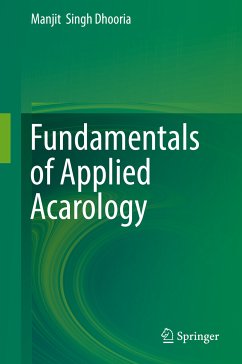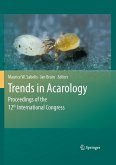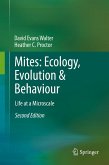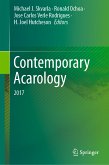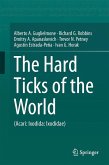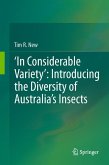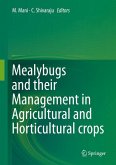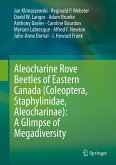Present Book, "Fundamentals of Applied Acarology," is written keeping in view non-availability of any standard text dealing in different aspects of acarology at one place. Separate chapters in this book are devoted to Importance of Acarology, Historical account, acarine technology, morphology and anatomy of Acari; Feeding, Development and Reproduction. Molecular developments in relation to mites and ticks are also discussed. Role of mites and ticks in Quarantines of plants and animals; forensic/criminal investigations; and importance of accidental acarophagy are discussed in detail. Safe usage of pesticides based on their mode of action (IRAC's Groups), development of acaricide resistance and measures to mitigate it are discussed. Mite pests of fruit trees, vegetable plants, and floricultural plants; field crops;mite problems in greenhouses/polyhouses; and mite problems encountered under organic cultivation of plants; and their management through minimum usage of pesticides are emphasized. Role of different predaceous mites in controlling plant pests like thrips, aphids and scale insects is elaborately discussed. Biological control of phytophagous mites is discussed in detail. Different animal parasitic mites and ticks are discussed from veterinary and medical point of view.
At the end of each chapter, many important references for further reading; and Electronic References (ER) in the form of youtube links and other weblinks are given to understand fully how these tiny creatures look like; behave, feed and reproduce; nature of damage they cause to plants and animals; and measures to mitigate them. Weblinks will stimulate interest in the readers for more information about different mites and ticks. The knowledge contained in the book may prove as best material for "General and Applied Acarology" course for graduate and post-graduate levels, teachers and researchers in entomology, pest control advisors, professional entomologists, pesticide industry managers, policy planners, and others having interest in mites and ticks.
Dieser Download kann aus rechtlichen Gründen nur mit Rechnungsadresse in A, B, BG, CY, CZ, D, DK, EW, E, FIN, F, GR, HR, H, IRL, I, LT, L, LR, M, NL, PL, P, R, S, SLO, SK ausgeliefert werden.

